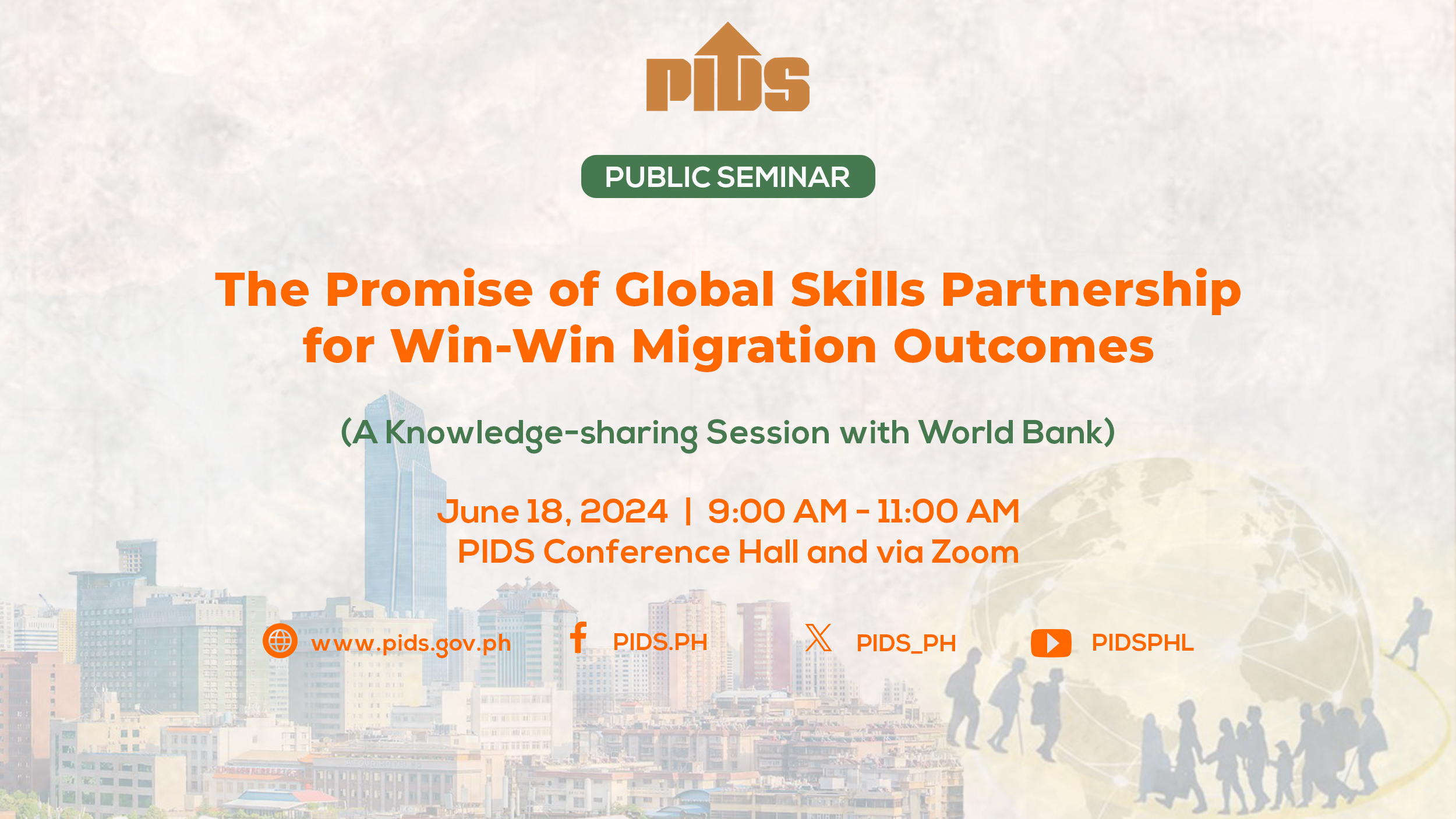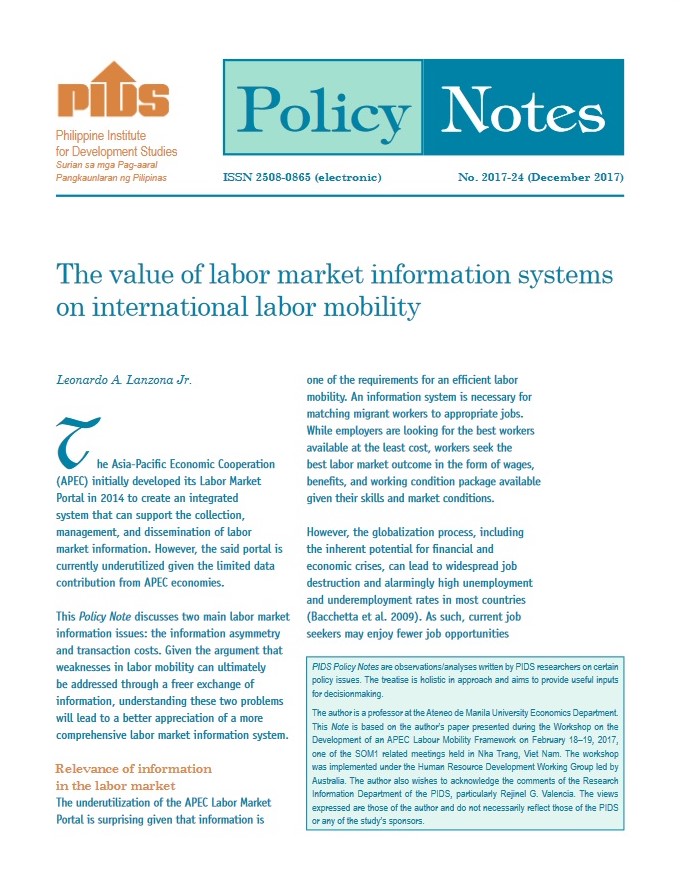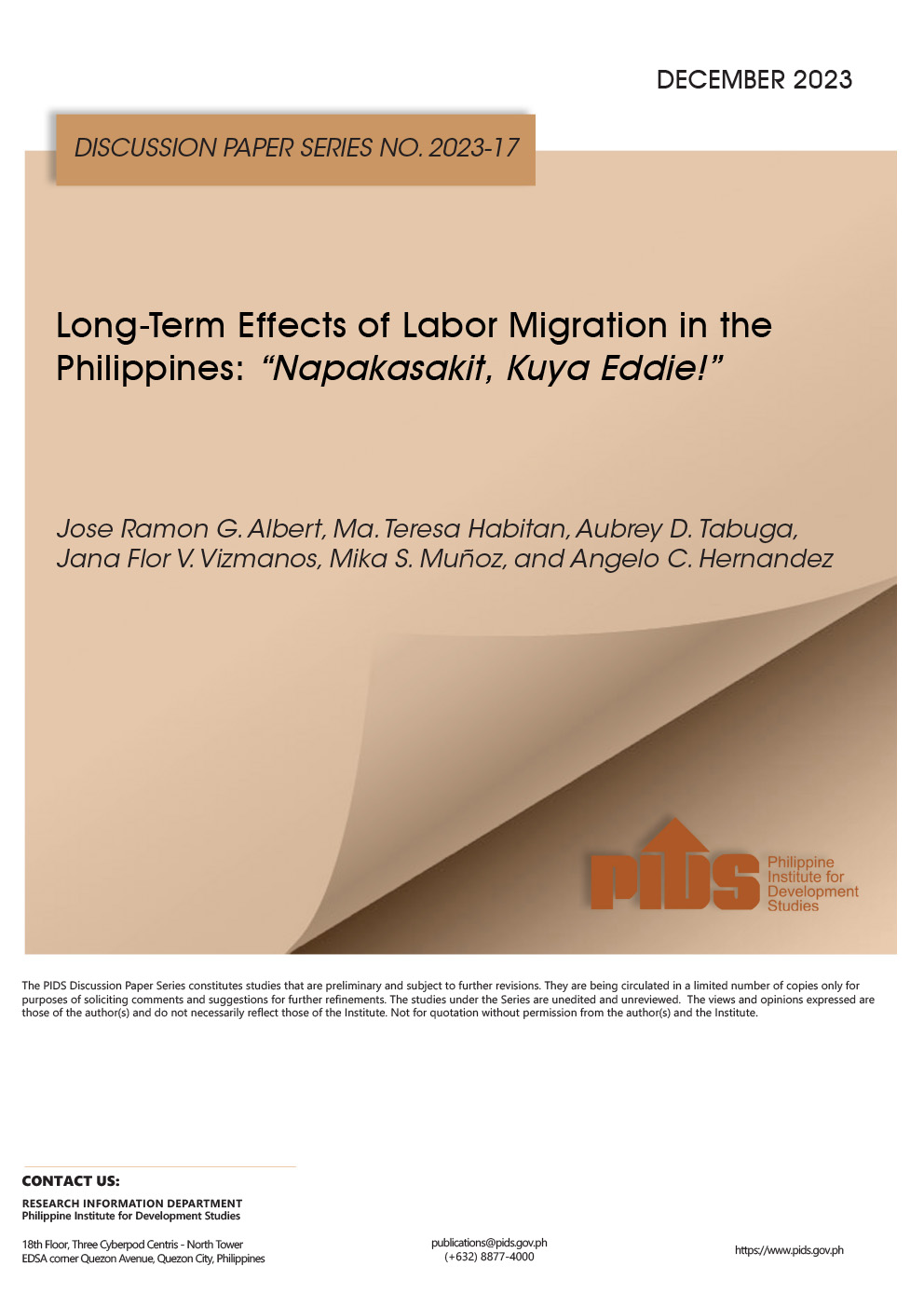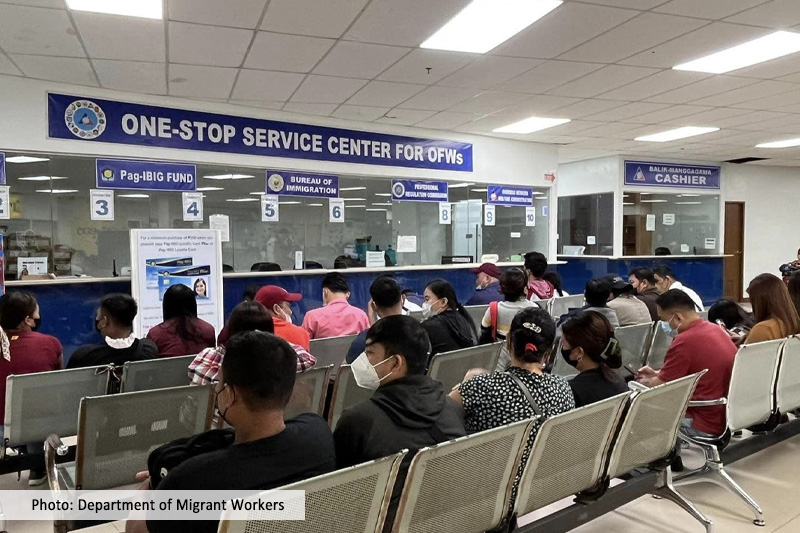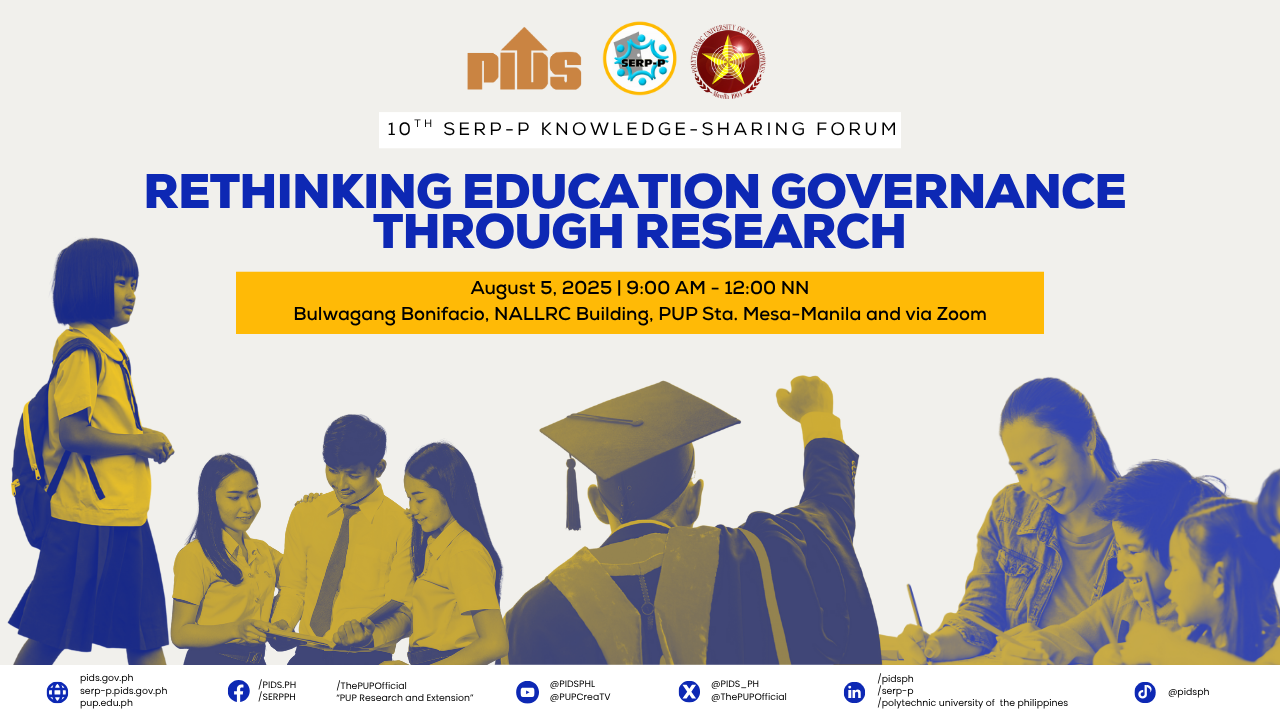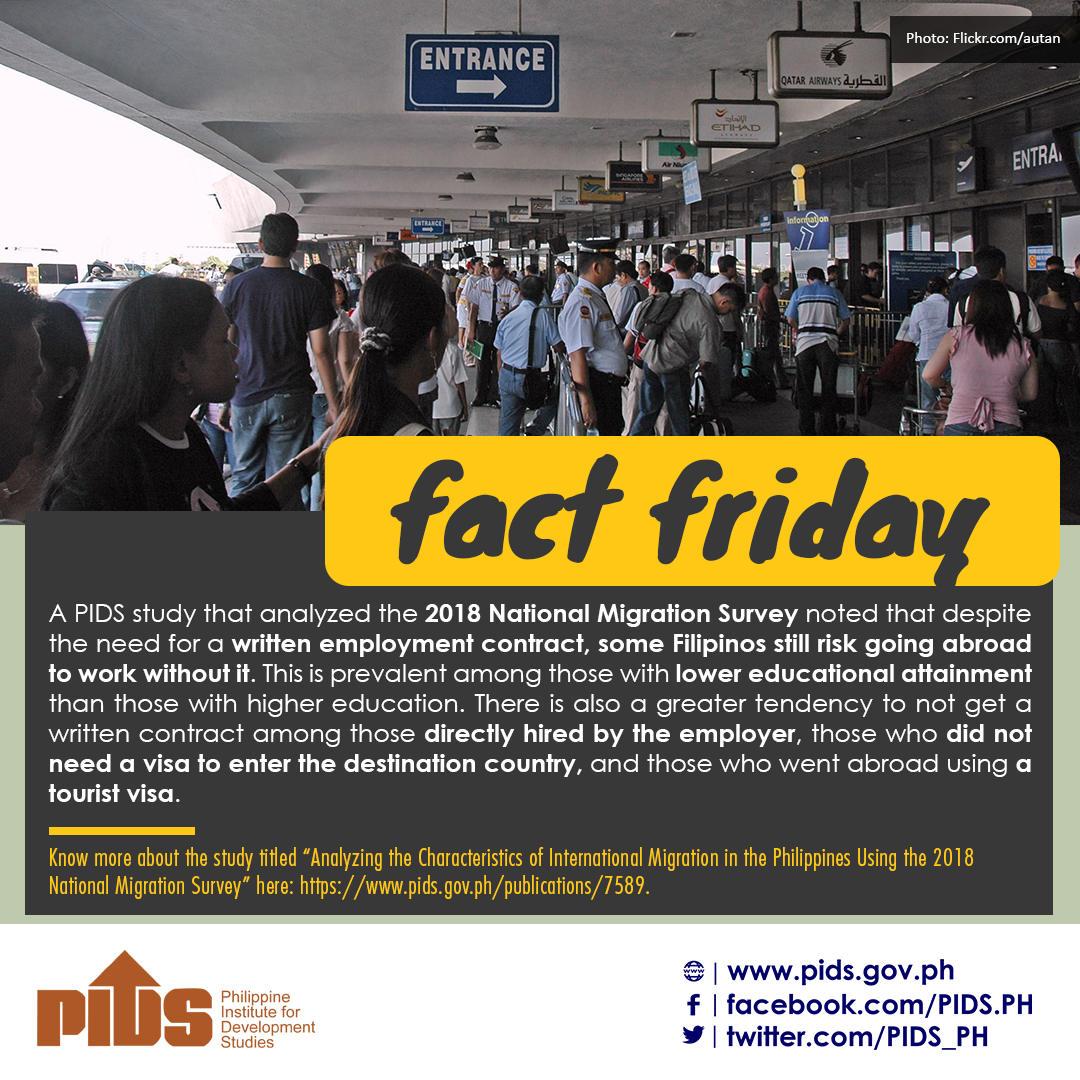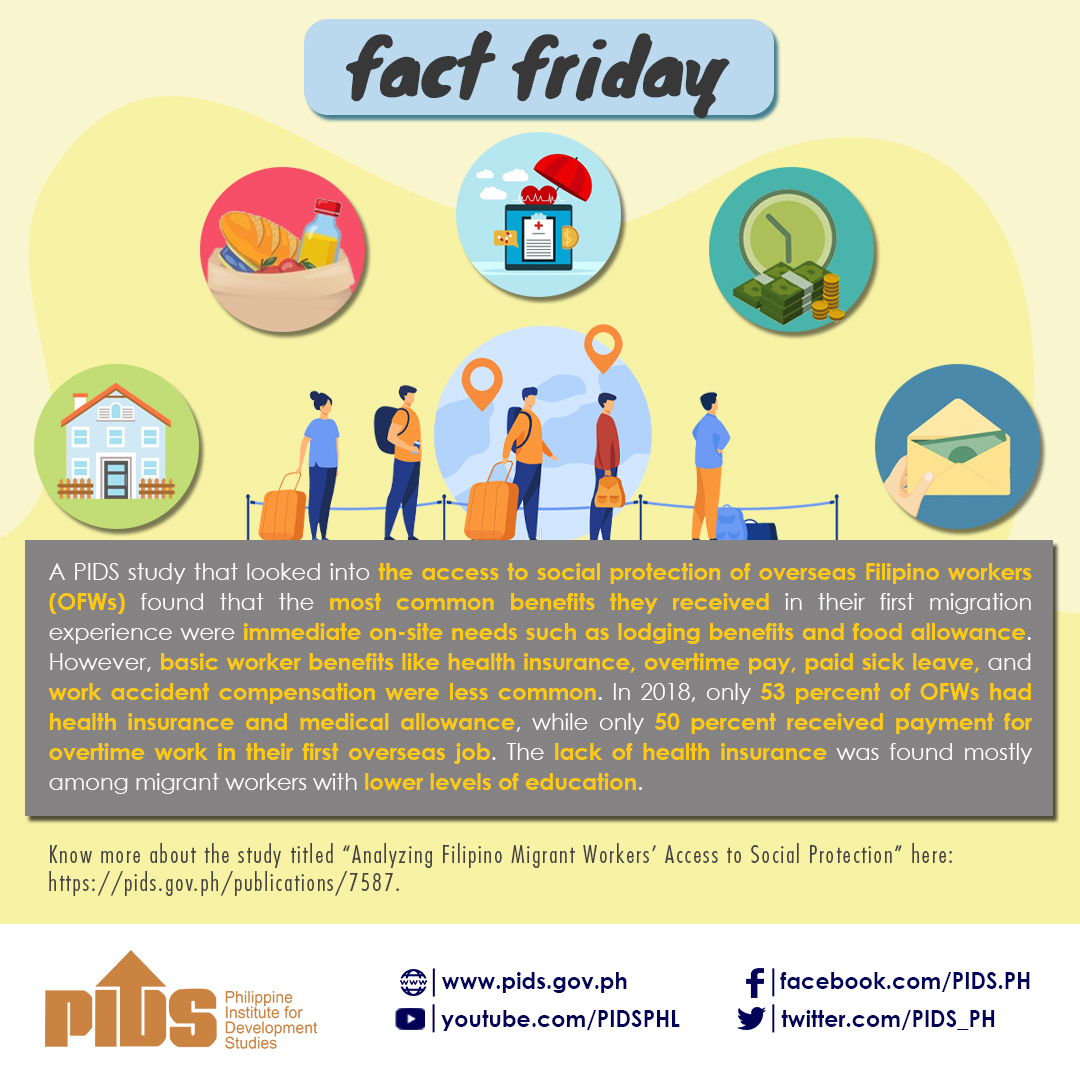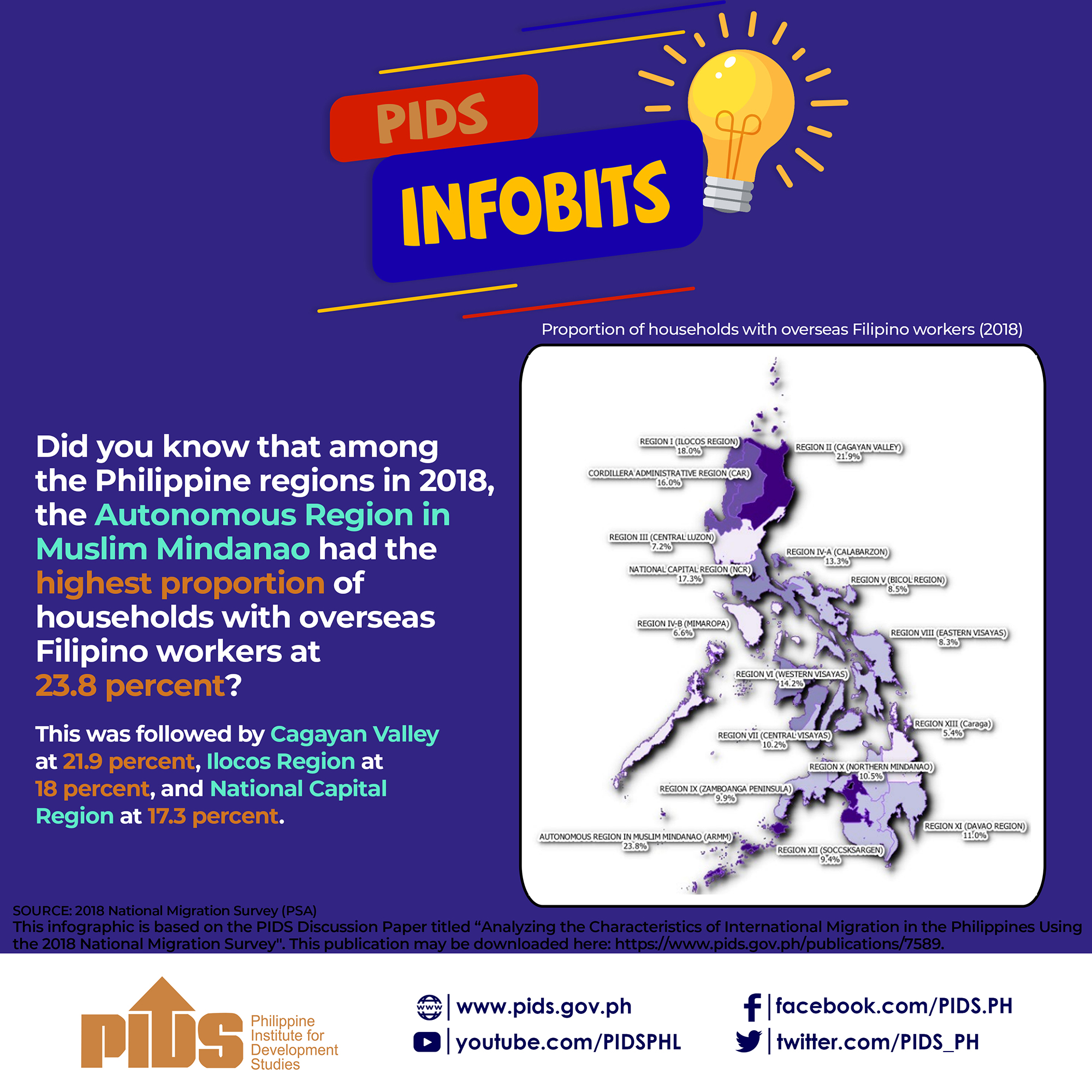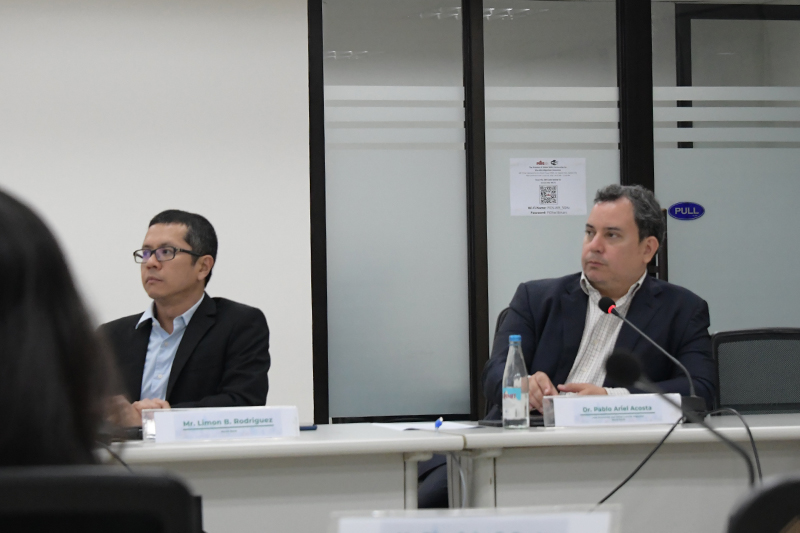
Demographic shifts, driven by aging populations and declining fertility rates in high-income and upper-middle-income countries, are poised to reshape migration patterns. This emphasizes the urgent need to invest in skills development to meet global labor market demands. Through the adoption of Global Skills Partnerships (GSPs), countries can go beyond simple bilateral agreements and focus on serious investments in upskilling the future labor force.
World Bank Economists Dr. Pablo Ariel Acosta and Mr. Limon Rodriguez presented this analysis during a knowledge-sharing session organized by the Philippine Institute for Development Studies (PIDS). They presented the study titled, “The Promise of Global Skills Partnership for Win-Win Migration Outcomes”, highlighting the pivotal role of GPS in yielding positive outcomes for both sending and receiving countries.
Acosta initiated the discussion by exploring the economic motivations behind migration. “People are moving primarily to achieve better economic living and opportunities,” he noted. He underscored significant regional migration patterns, particularly from East Asia to higher-income regions like North America and Europe emphasizing the economic benefits of migration and the substantial income increases that enable migrants to send remittances back home.
Acosta cautioned about impending population declines in high-income countries, citing Japan as an example and noting its need for millions of workers in the coming decades. He stressed the crucial role of skilled migration in maintaining economic stability. He highlighted the necessity of managing migration effectively through the establishment of legal pathways to minimize undocumented movement and maximize the benefits of skilled migration via programs like GSPs. This strategy fosters collaboration between origin and destination countries to align migrant skills with labor market demands and share responsibilities for skills development.
Rodriguez discussed specific GSP programs such as the Pilot Project Addressing Labour Shortages Through Innovative Labour Migration Models (PALIM), Australia Pacific Training Coalition (APTC), and South Korea’s Employment Permit System (EPS), among others. Through these examples, he emphasized GSP’s critical role in addressing skill shortages by facilitating legal and systematic pathways for labor mobility.
Key features of successful GSPs include addressing skill gaps in both origin and destination countries, funding training from the destination, and adhering to legal migration pathways. The integration of workers into high-growth sectors hinges on streamlining administrative processes, which Rodriguez said was a recent focal point of discussions within the newly established Department of Migrant Workers in the Philippines.
PIDS Research Fellow Dr. Aubrey D. Tabuga further delved into the design and implementation of GSPs, affirming the presenters’ focus on integrating skills training to meet labor demands in both origin and destination countries. She noted that these agreements emphasize the significance of coordination in skill intermediation, training support for migrant welfare, and information gathering.
Dr. John Paolo R. Rivera, OIC Executive Director at Asian Institute of Management - Dr. Andrew L. Tan Center for Tourism, added depth to the discussion by emphasizing the importance of finding mutually beneficial outcomes, particularly for developing countries, like the Philippines. He advocated for a systematic approach to labor migration, highlighting the transformative potential of skills development at origin in mitigating brain drain risks and enhancing global competitiveness.
Experts acknowledged that while the Philippines’ participation in GSPs is still evolving, it offers opportunities for mutually beneficial outcomes through enhanced skills recognition, financial sustainability, and welfare protection. They stressed the urgency of investing in human capital through education to align domestic needs with international labor market demands, envisioning GSPs as a strategic framework for achieving sustainable economic growth through skilled migration.
View photos of the session here.
Watch the recording of the knowledge-sharing session here: https://bit.ly/pidslive061824. ###

